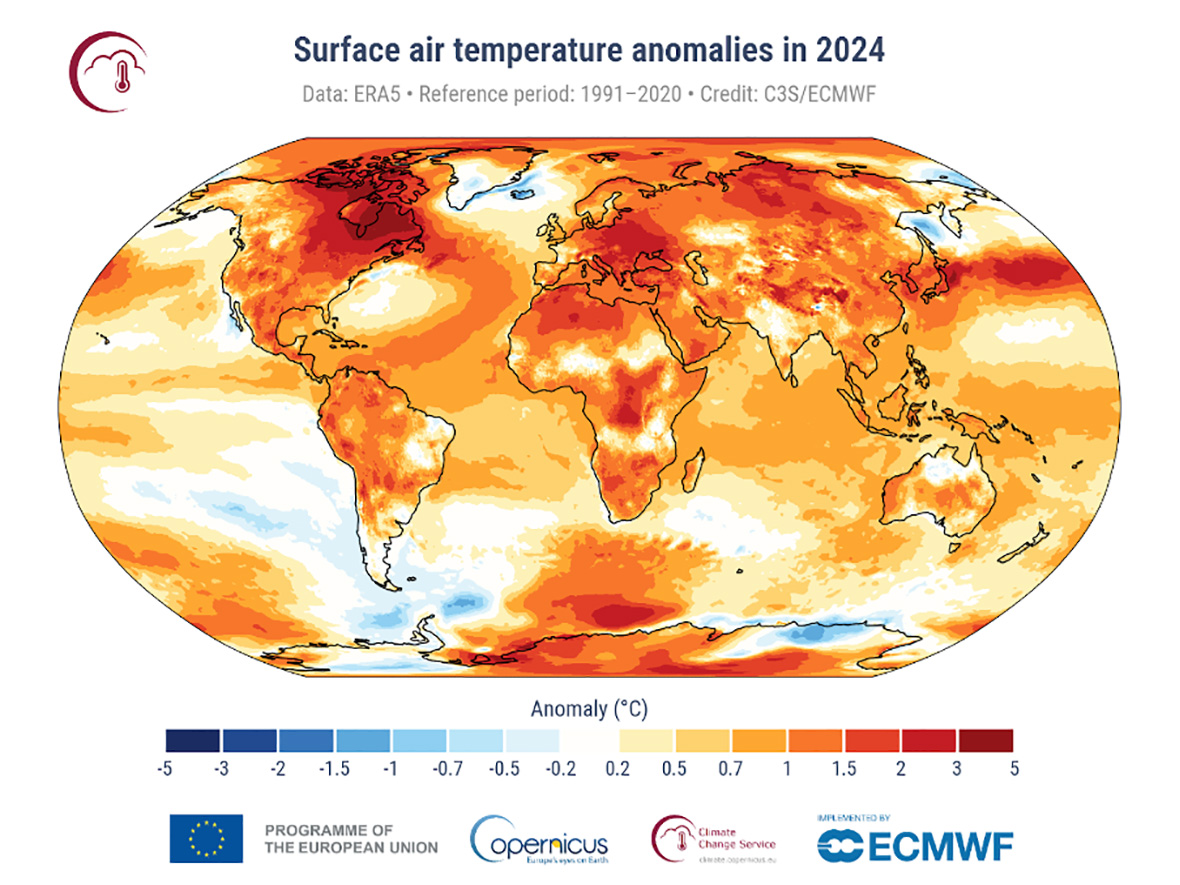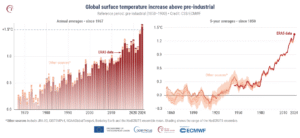
© Copernicus Climate Change Service (C3S)/European Centre for Medium-Range Weather Forecasts (ECMWF)
2024 was the hottest calendar year yet, the World Meteorological Organization (WMO) confirmed in January. Not only that, the average global temperature exceeded 1.5°C above the pre-industrial baseline for the first time, pushing the Earth’s climate into uncharted territory.
Last year, the world was gripped by severe floods, extreme weather conditions, widespread heatwaves, and deadly fires that took millions of lives worldwide. A major concern throughout the year was the record setting temperatures from land to oceans. Climate change led to 41 more days of extreme heat in 2024.
A recent report by Copernicus Climate Change Service (C3S) states that while human-induced climate change is the primary reason for extreme air and sea surface temperatures, the El Nino Southern Oscillation—a climatic phenomenon involving fluctuating sea surface temperature and air pressure in the equatorial Pacific Ocean—also contributed to the temperature rise during the year.
“Each year in the last decade is one of the ten warmest on record,” says Samantha Burgess, Strategic Lead for Climate at the European Centre for Medium-Range Weather Forecasts, in the C3S report. The Intergovernmental Panel on Climate Change (IPCC)’s Sixth Assessment report shows that for every half-degree Celsius increase in temperature, the frequency of heatwaves, heavy rainfall, and flooding will increase.

© Copernicus Climate Change Service (C3S)/European Centre for Medium-Range Weather Forecasts (ECMWF)
In 2015, 196 countries signed the Paris Agreement to limit the global temperature increase to 1.5°C above pre-industrial levels. While surpassing the 1.5°C limit sounds alarming, breaching it for one year does not constitute crossing the Paris threshold. The Paris Agreement refers to a long-term average temperature that increases over decades.
While news reports about the breach might be shocking and raise concerns about worst-case scenarios, experts are also exploring solutions. To begin with, a recent paper published by the German Climate Consortium emphasised that the “foreseeable exceeding of the benchmark of 1.5°C should be openly communicated” and considered in political actions.
In the report by C3S, director Carlo Buontempo, said humanity is in charge of its own destiny. He added that “the future is in our hands – swift and decisive action can still alter the trajectory of our future climate.
No comments yet. Be the first to comment!
Leave a comment